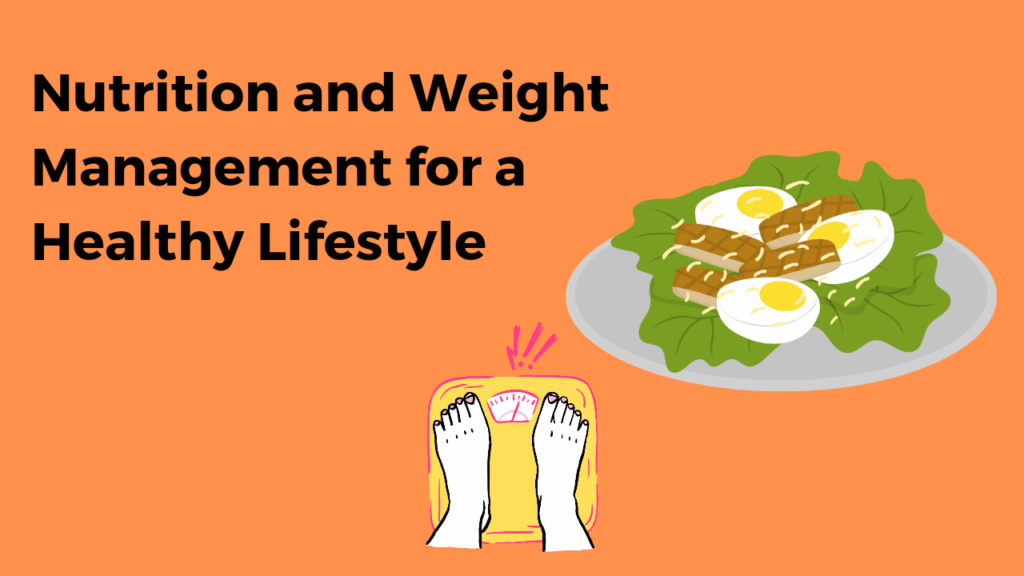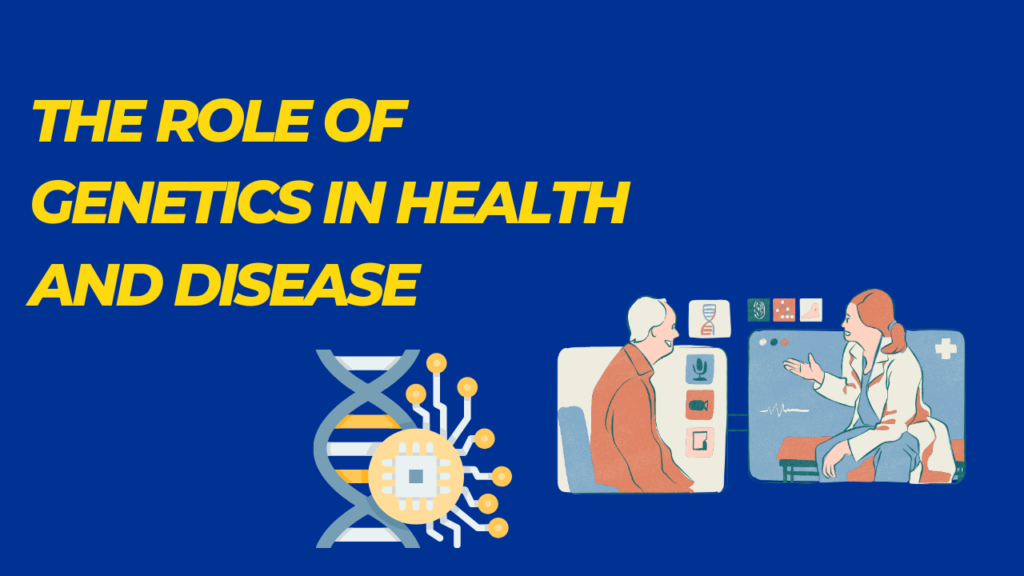NUTRITION AND WEIGHT MANAGEMENT FOR A HEALTHY LIFESTYLE

Maintaining a healthy lifestyle through nutrition and weight management is crucial for overall well-being. Here are some key principles:
1. Balanced Diet: Consume a variety of foods from all food groups, including fruits, vegetables, lean proteins, whole grains, and dairy or dairy alternatives.
2. Use smaller plates and listen to your body’s hunger cues.
3. Limit sugary beverages and alcohol.
4. Nutrient Density: Choose nutrient-dense foods that provide essential vitamins and minerals without excessive calories.
5. Meal Planning: Plan your meals and snacks ahead of time to make healthier choices and avoid impulsive, unhealthy options.
6. Regular Meals: Aim for regular meal times and avoid skipping meals, as this can lead to overeating later in the day.
7. Healthy Fats: Incorporate healthy fats from sources like avocados, nuts, and olive oil while limiting saturated and trans fats.
8. Fiber: Include fiber-rich foods like fruits, vegetables, and whole grains to aid digestion and promote satiety.
9. Protein: Consume adequate protein to support muscle health and keep you feeling full longer.
10. Mindful Eating: Pay attention to what you eat, savor each bite, and eat without distractions to prevent overeating.
11. Exercise: Combine a balanced diet with regular physical activity to manage weight effectively and improve overall fitness.
12. Monitoring: Keep track of your food intake and physical activity to maintain awareness of your habits and progress.
13. Sleep: Ensure you get enough quality sleep, as inadequate sleep can affect hunger hormones and lead to weight gain.
14. Stress Management: Practice stress-reduction techniques like meditation, yoga, or deep breathing to prevent emotional eating.
15. Professional Guidance: Consult a registered dietitian or healthcare provider for personalized guidance, especially if you have specific dietary needs or health concerns.
Remember that sustainable weight management involves gradual, long-term changes rather than quick fixes or extreme diets.
Nutrition and weight management are crucial components of a healthy lifestyle.
1. Use smaller plates and listen to your body’s hunger cues.
2. Limit Sugars and Processed Foods: Reduce your intake of sugary beverages and processed foods high in added sugars, sodium, and unhealthy fats.
3. Regular Meals: Eat regular, balanced meals and avoid skipping meals. This helps stabilize blood sugar levels and prevents overeating later in the day.
4. Mindful Eating: Pay attention to what you eat and savor your meals. Avoid distractions like screens while eating to prevent mindless overeating.
5. A combination of cardio, strength training, and flexibility exercises can help manage weight.
6. Gradual Changes: Avoid extreme diets or rapid weight loss plans. Sustainable changes over time are more effective and healthier.
7. Sleep: Prioritize good-quality sleep, as inadequate sleep can disrupt appetite-regulating hormones and lead to weight gain.
8. Seek Professional Guidance: If you have specific dietary needs or weight management goals, consider consulting a registered dietitian or healthcare provider for personalized guidance.
Remember, a healthy lifestyle is not just about weight management; it’s also about overall well-being and making choices that promote long-term health.
Maintaining a healthy lifestyle through nutrition and weight management is essential for overall well-being. Here are some key tips:
1. Balanced Diet: Consume a variety of foods from all food groups, including fruits, vegetables, lean proteins, whole grains, and healthy fats.
2. Use smaller plates and listen to your body’s hunger cues.
3. Limit sugary drinks and excessive caffeine.
4. Regular Meals: Eat regular, balanced meals and avoid skipping meals, as this can lead to overeating later in the day.
5. Limit Processed Foods: Minimize processed and ultra-processed foods high in sugar, salt, and unhealthy fats.
6. Mindful Eating: Pay attention to what you eat, savor each bite, and avoid distractions like screens while eating.
7. Sleep: Prioritize quality sleep, as lack of sleep can affect hunger hormones and lead to weight gain.
8. Manage Stress: Find healthy ways to manage stress, such as meditation, yoga, or hobbies, to prevent emotional eating.
9. Support System: Seek support from friends, family, or a healthcare professional when needed for motivation and accountability.
Remember, it’s important to consult with a healthcare provider or registered dietitian for personalized advice tailored to your specific needs and goals.






